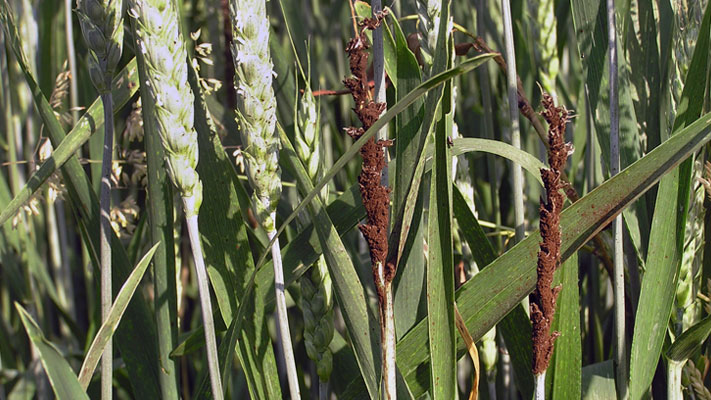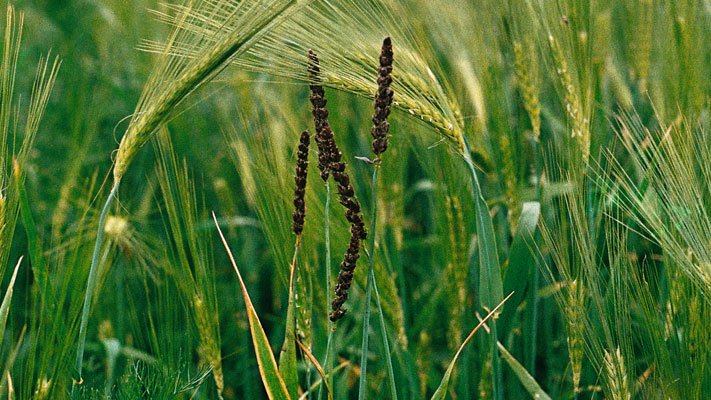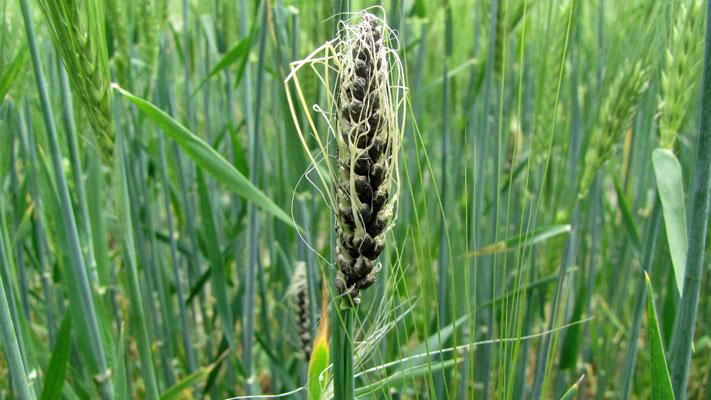Flag smut

Description
Symptoms appear on the leaves, leaf sheath, awns and sometimes stems. Flag smut is characterised by long, raised, black streaks which break through the plant tissue revealing masses of sooty grey-black spores. Plants may be stunted, leaves can appear curled and distorted, and plants can tiller excessively, with not all tillers displaying symptoms. Infected tillers generally don’t produce grain.
Flag smut is seed and soil-borne and spores can survive in the soil for up to seven years. Spores are released during harvest, contaminating grain and the soil. Spores from contaminated grain infect seedlings prior to emergence, this process is favoured by warm temps (20 °C) and early dry sowing.
Control
Preventative measures are important to control flag smut. Resistant varieties should be planted, particularly in paddocks where flag smut has been previously diagnosed.
The regular use of seed dressings provides effective control for flag smut in wheat. Several options exist including Jockey® Stayer®, EverGo®; Prime , EverGol® Energy, Raxi® T and Hombre® Ultra.
Jockey Stayer , EverGol Energy, Raxil T and Hombre Ultra are all registered for the control of flag smut (seed and soil-borne) in wheat and EverGol Prime is registered for the control of seed-borne flag smut and suppression of soil-borne flag smut.
References
CropPro (Viewed Nov 2019), ‘Flag smut of wheat’, http://www.croppro.com.au/crop_disease_manual/ch04s05.php
Department of Primary Industries and Regional Development (DPIRD) (2016), ‘Diagnosing flag smut of wheat’, https://www.agric.wa.gov.au/mycrop/diagnosing-flag-smut-wheat
Holloway, G (2012), ‘Bunts and Smuts of Cereals’, Agriculture Victoria, http://agriculture.vic.gov.au/agriculture/pests-diseases-and-weeds/plant-diseases/grains-pulses-and-cereals/bunts-and-smuts-of-cereals
Thomas, G, Jayasena, K, Beard, C and Hills, A (2017), ‘Smut and bunt diseases of cereal – biology identification and management’, Department of Primary Industries and Regional Development (DPIRD), https://www.agric.wa.gov.au/print/node/326











